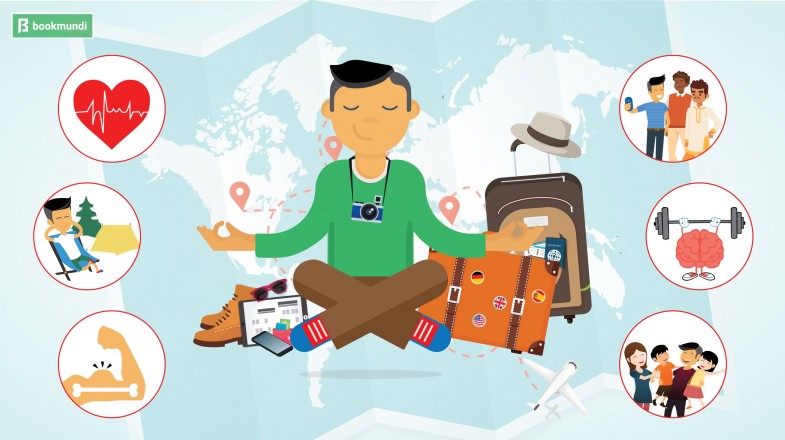
Here are some tips to help improve your heart health. Exercise daily. Regular exercise can help improve your cardiovascular and other health factors. Moderate-intensity exercises can help you reduce excess calories and avoid diseases. You'll also feel happier and have more energy. These are just a few of the many benefits of exercising regularly. You can improve your heart health by exercising at least 30 minutes per day, regardless of your fitness level.
Get your HPV shot. HPV can be contracted by anyone who is sexually active. This can cause cervical cancer. The recommended vaccines for children as young 11-years-old and for women as old 26-years-old are HPV vaccinations. You should also get a flu vaccination. You should also drink lots of fluids. Clear skin is an important part of feeling younger. Remember to drink lots of water. You will be glad you did. You will be able to look and feel great.

Healthily eat. Women still in childbearing year should eat foods high-in folic Acid, which helps protect against birth defects. Women should take in more calcium and vitamin D after menopause. These nutrients can also be found in low fat dairy products and egg yolks. These nutrients can help prevent osteoporosis, bone disease, and other issues associated with aging. You should choose foods high in calcium and vitamin-D.
Pay attention to your sleep. Women tend to neglect their own health. This is why National Women's Health and Fitness Week is such an important time to focus on your own health. It doesn't matter how tight your budget is, you can still exercise regularly and eat healthy. Regular mammograms can help prevent breast Cancer and improve your quality-of-life. You can take better care of your body at home.
Make time to exercise every day while you work. Walking for 30 minutes can increase circulation, muscle tone and mood, as well as energy and low-impact cardio can help women maintain and lose weight. And if you're not already active, begin slowly with a gentle brisk walk or swim. Gradually increase your activity levels as you age. Do low-impact cardio, if it isn't something you enjoy doing, to make exercise more enjoyable.

Daily exercise is important. Even if you're not in the best shape, a daily workout can prevent heart disease. A quarter of all women die of heart disease. Even though it seems like a small number, regular exercise is good for your heart and can improve many aspects of your health. Exercise can help prevent certain diseases like arthritis. It can also help with weight loss. If you can manage your weight, you'll be healthier and more energetic.
FAQ
Is cardio exercise good for your health or bad?
Cardiovascular exercise can have many benefits. It improves blood circulation, strengthens your heart muscle, increases stamina, helps you lose weight, and gives you energy.
Cardiovascular exercise includes running, biking, hiking, swimming, tennis, basketball, soccer, volleyball, football, etc.
It is important that cardio exercises are not performed at high intensities. This could lead to injury.
Only do the cardio exercise when you are feeling good.
You should never push yourself beyond your limits. If you do, you might injure your self.
Begin by warming up before engaging in cardio exercise. Next, increase your intensity gradually.
Listen to your body. If you feel pain while performing cardiovascular exercise, it is important to stop immediately.
After a cardiovascular training session, it is recommended that you take some time to relax. This will allow your muscles to rest.
Cardiovascular exercise can help you lose weight.
It is the best method to lose calories and reduce belly weight.
Are there any benefits to practicing yoga?
Yoga has been around since ancient times and has gained popularity recently. Yoga is now very fashionable among celebrities and everyday people who want to look and feel good.
Yoga is great because it stretches your muscles while strengthening them. It calms you down and relaxes you.
The main difference between yoga and other forms of exercise is that yoga focuses on breathing techniques.
Practice a variety of poses to increase your flexibility and balance.
Which order is best for working out?
It all depends what you want. Start with heavy lifting if you're looking to build muscle mass. Next, move on to cardio. If you are looking to lose weight, then move on to strength training.
You can burn fat by just doing cardio. You can then add strength training.
Cardio is the best way to build muscle mass.
Before you start your workout, it is a good idea to eat. This will fuel your muscles, making them work harder. Plus, it makes you feel better during your workout.
Statistics
- The PRS enabled risk stratification for overall prostate cancer and lethal disease with a four-fold difference between men in the highest and lowest quartiles (HR, 4.32; 95% confidence interval [CI], 3.16-5.89). (pubmed.ncbi.nlm.nih.gov)
- By John Thompson Take a whopping 38% off a set of PowerBlock Pros. (menshealth.com)
- Candidates and applicants must pass all four tests at 70% (minimum level) to graduate from Basic Deputy U.S. Marshal (BDUSM) Training. (usmarshals.gov)
- Get free shipping and 25% off today. (healthline.com)
- According to the American Heart Association, blood pressure should be checked at least once every two years, beginning at age 20. (my.clevelandclinic.org)
External Links
How To
How do I lose fat by exercising?
Exercise burns calories through increased metabolism and oxygen consumption.
If you exercise with moderate intensity, you can safely lose weight.
These tips can help you to burn fat while training:
-
Cardio exercises can include running, walking, swimming or cycling.
-
For 30 minutes, do it three times a week.
-
Add strength training to your workouts if you are looking to lose more weight.
-
Avoid intense workouts. You can build muscle without having to lose muscle tissue.
-
During exercise, drink plenty of water. Water flushes out toxins, and keeps your body properly hydrated.
-
After working out, make sure to drink low-fat proteins shakes. Protein shakes repair muscles and increase energy.
-
Take smaller meals throughout each day to avoid feeling hungry.
-
Don't skip breakfast! You can feel tired and slow if you skip breakfast.
-
Take care to your mental well-being. Stressful situations can slow down metabolism.
-
Keep a positive attitude. Studies show that people who believe they're overweight gain more weight than those who think they look pleasing.
-
Sleep enough. A lack of sleep makes it difficult to lose fat.
-
Always be active. Be sure to get up and move around every hour or two.
-
Maintain a healthy diet. A healthy diet will help you feel fuller for longer.
-
Find ways to relax. Relaxing doesn't mean your body releases stress hormones which cause muscle tissue to be destroyed.
A balanced diet includes all essential nutrients needed for growth and development.
Six small meals per day is better than three large meals. This allows your body to properly digest what you have eaten.
For strong bones, we need 500 mgs of calcium daily. Calcium can be found as a dairy product such as milk, yogurt and fortified soy drinks, orange juices, cereals, breads, and cereals.
Calcium comes from leafy green vegetables, beans, tofu, nuts, seeds, and cheese.
Vitamin D is essential for calcium absorption. Vitamin D can be found in egg yolk, fatty fish, and other fortified foods.
Vitamin E is important for skin health. Vitamin E can be found in vegetable oils as well as wheat germ oil, peanuts and almonds.
Your body requires zinc for normal immune function and wound healing. Zinc is found in oysters, legumes, meats, whole grains, and seafood.
Zinc deficiency may cause fatigue, loss appetite, depression, and impaired immunity.
Eating too much sugar causes insulin resistance, which increases blood glucose levels. Insulin resistance is linked to weight gain.
When there is a high level of free radicals, insulin resistance can develop. Free radicals can be molecules with unpaired electrons that cause damage to cell membranes.
The main sources of free radicals are food additives.
Free radicals can lead to cancer and heart disease, diabetes mellitus, arthritis, asthma, and premature aging.
Eating a well-balanced diet with antioxidants is the best way to prevent free radical damage. Antioxidants protect against oxidative damage.
Vitamin C is found in citrus fruits and beta carotene is found in carrots.
Selenium, copper and manganese are all antioxidant nutrients.
Selenium helps protect cells from oxidative damage caused by free radicals. Selenium can also be found in Brazil nuts (tuna), liver, kidneys and shrimp.
Copper protects the brain, eyes, lungs, and red blood cells. Copper is found in shellfishes, poultry, meat, organ meats, and other foods.
Manganese is essential for bone structure. Manganese is found in brown rice, spinach, bananas, prunes, raisins, oatmeal, and lentils.
Zinc is essential for normal growth, reproduction, wound healing, and average growth. Zn can be found in lean cuts, white fish, poultry, eggs, and other foods.